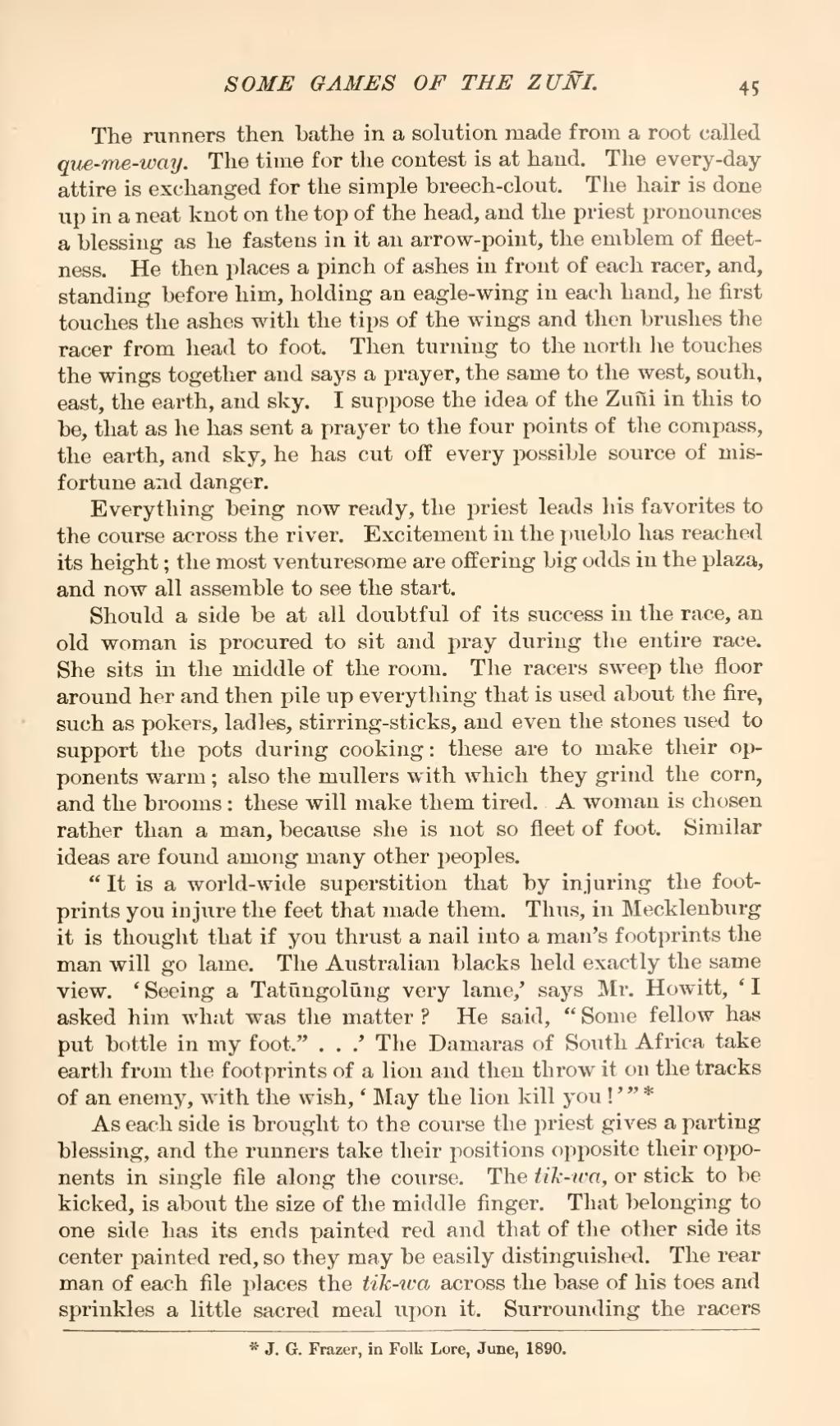The runners then bathe in a solution made from a root called que-me-way. The time for the contest is at hand. The every-day attire is exchanged for the simple breech-clout. The hair is done up in a neat knot on the top of the head, and the priest pronounces a blessing as he fastens in it an arrow-point, the emblem of fleetness. He then places a pinch of ashes in front of each racer, and, standing before him, holding an eagle-wing in each hand, he first touches the ashes with the tips of the wings and then brushes the racer from head to foot. Then turning to the north he touches the wings together and says a prayer, the same to the west, south, east, the earth, and sky. I suppose the idea of the Zuñi in this to be, that as he has sent a prayer to the four points of the compass, the earth, and sky, he has cut off every possible source of misfortune and danger.
Everything being now ready, the priest leads his favorites to the course across the river. Excitement in the pueblo has reached its height; the most venturesome are offering big odds in the plaza, and now all assemble to see the start.
Should a side be at all doubtful of its success in the race, an old woman is procured to sit and pray during the entire race. She sits in the middle of the room. The racers sweep the floor around her and then pile up everything that is used about the fire, such as pokers, ladles, stirring-sticks, and even the stones used to support the pots during cooking: these are to make their opponents warm; also the mullers with which they grind the corn, and the brooms: these will make them tired. A woman is chosen rather than a man, because she is not so fleet of foot. Similar ideas are found among many other peoples.
"It is a world-wide superstition that by injuring the footprints you injure the feet that made them. Thus, in Mecklenburg it is thought that if you thrust a nail into a man's footprints the man will go lame. The Australian blacks held exactly the same view. 'Seeing a Tatūngolūng very lame' says Mr. Howitt, 'I asked him what was the matter? He said, "Some fellow has put bottle in my foot."...' The Damaras of South Africa take earth from the footprints of a lion and then throw it on the tracks of an enemy, with the wish, 'May the lion kill you!'"[1]
As each side is brought to the course the priest gives a parting blessing, and the runners take their positions opposite their opponents in single file along the course. The tik-wa, or stick to be kicked, is about the size of the middle finger. That belonging to one side has its ends painted red and that of the other side its center painted red, so they may be easily distinguished. The rear man of each file places the tik-wa across the base of his toes and sprinkles a little sacred meal upon it. Surrounding the racers
- ↑ J. G. Frazer, in Folk Lore, June, 1890.
